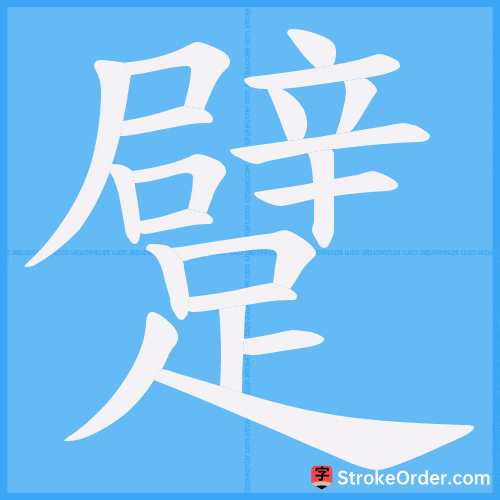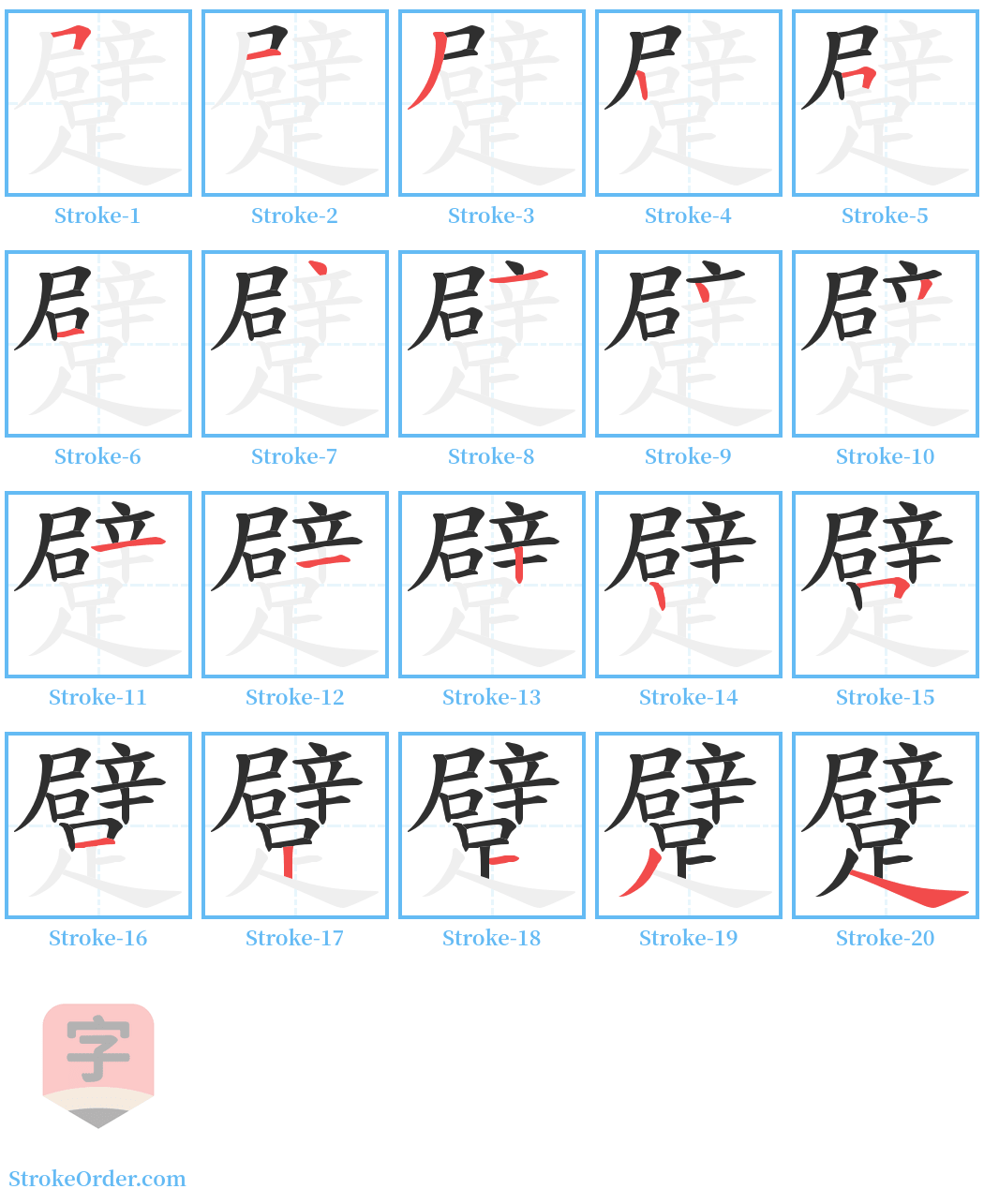躄 Stroke Order
Animated Stroke Order of 躄

Stroke Order Diagrams for 躄

Information of 躄
Pinyin
bì
Radical
足
Strokes
20 strokes
Usage
★★
Definition
躄 (bì)
1. Lame; characterized by a limp.
2. [~~] The manner of continuous movement, as in "What a strange and youthful presence, how can the chariot move continuously!"
3. To fall down.
Example Sentences:
1. Lame: "In the common people's family, there are those who are lame, unable to draw water without help."
2. [~~] The manner of ongoing movement: "What a strange and youthful presence, how can the chariot move continuously!"
3. Fallen: "In a state of confusion, he fell down."
4. "Lame, deaf, and limp" (from the Book of Rites, Wang Zhi).
5. "Even if one is lame, one can still try to stand up" (from Qifa).
6. "In the records of the Historical Records, there are people who are lame" (commentary: "lame").
7. "The limp person saw a tiger and did not run away" (from Huainanzi, On the Forest).
8. "The lame person spoke to the blind person" (from Huainanzi, On the Mountain).
9. "One's body is covered in calluses and has a limp step" (from Liu Zongyuan's Tian Dui).
10. "Lame, deaf, and limping" (from the Book of Rites, Wang Zhi).
Examples:
- Lame foot (跛足; qudisable leg).
- Limping (跛行).